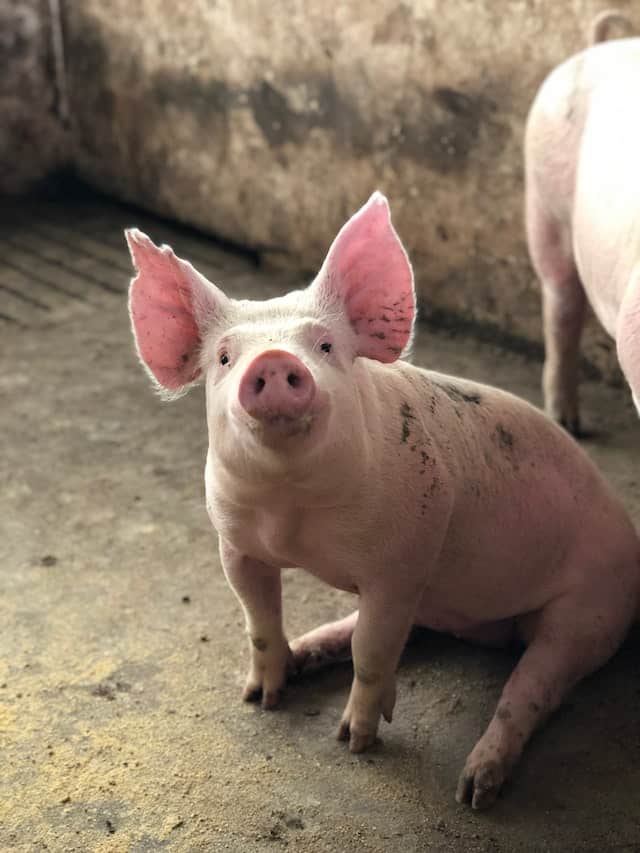Is it permissible to take medication with pork products or have pig valves?

Many doctors ask if something has elements of pig or alcohol can they prescribe it?
I ask if there is an alternative available. If there is, then it is a no-go area. We have to take the alternative, even if it has 80% of the efficacy of the one with alcohol in it.
If there is no alternative, and someone has a chronic disease with no cure, except this which contains some haram elements in it, then they are allowed to take this medicine. But we need to do the assessment in the first place. You need to go through the details.
Using pig valves in heart surgery
Some doctors ask if they can use pig valves instead of cow valves during heart surgery. If the cow valve is available and will be effective then they should use it. However the cow one has less lifespan, whereas the pig one lasts longer, it depends on the case. If the patient is weak, fragile and elderly and their situation is not stable, then using the cow valve will create more harm for him than the pig one. If the patient is otherwise young and fairly stable, the cow one would be a better option.
In general it is haram but I cannot issue a fatwah without the specific details of each situation. We act in accordance with general guidance as best as possible.
Nasal flu vaccine and pork gelatine
Is gelatine halal?
Many people ask if they can let their children have the nasal flu vaccine as it contains porcine gelatine?
The nasal vaccine
Each year, the influenza virus, the flu, causes illness, time off work, hospital admissions and deaths. This year, with the Coronavirus pandemic, it is even more important to ensure we look after ourselves and take the flu vaccine if eligible.
According to nhs.uk:
Flu vaccination is important because:
If you’re at higher risk from coronavirus, you’re also more at risk of problems from flu, if you get flu and coronavirus at the same time, research shows you’re more likely to be seriously ill.
Interestingly, it has been postulated that cross-reactivity between the influenza virus and Coronavirus may help to provide some immunity and/ or lessen the severity of a SARS-Cov-2 infection.
There are 2 main routes of receiving the flu vaccine, by injection or by nasal spray. The nasal spray is reserved for children only, who can spread flu quite quickly, with a few exceptions. The nasal flu vaccine is considered effective at preventing flu and us easy to administer amongst children. But is it permissible?
The ‘no’ camp
There is a difference of opinion among scholars.
Imams Shafi’, Maliki and Hanbali held that once something is impure then it is always impure.
The ‘yes’ camp
The Hanafi school of thought says that if the state of a substance has changed, then the impure becomes pure.
An example of where an impure substance becomes pure is vinegar which is derived from fermented alcohol but becomes permissible as it undergoes a process of change.
The Fiqh principle of change
The Arabic term for transformation is Istihaala.
Istihalah, from the Fiqh point of view, is defined as changing the nature of a substance so that it is completely transformed physically and chemically.
Who is in the Yes camp?
According to the Islamic Organization for Medical Science gelatine undergoes a complete transformation and is different from the substance from which it was derived.
Its chemical properties differ from the original substance from which it was extracted. The structure of the molecules is different. [i]
This means that according to the Hanafi opinion, gelatine is halal, regardless of whether it was derived from animals that are considered halal or haram, including pigs, and animals not slaughtered by halal methods.
Based on the Hanafi opinion, foods and medication containing gelatine, even porcine gelatine are permissible.
And it is permissible to take the nasal flu vaccine and other medication which contain gelatine.
[i] A chemical change, also known as a chemical reaction, is a process in which one or more substances are irreversibly altered into one or more new and different substances. In other words, a chemical change is a chemical reaction involving the rearrangement of atoms. Examples of chemical reactions include photosynthesis, rusting and burning.
Hydrolysis is a type of decomposition reaction where one of the reactants is water; and typically, water is used to split molecules by breaking chemical bonds in the other reactant.
Examples of hydrolysis reactions include making soap. The saponification reaction occurs when a triglyceride (fat) is hydrolyzed with water and a base (usually sodium hydroxide, NaOH, or potassium hydroxide, KOH). Fatty acids react with the base to produce glycerol and salts (which becomes soap).
Gelatine is a form of hydrolysed collagen which means it has been broken down.
To convert collagen from animal parts into gelatine, several processes are used that break the bonds of collagen and release certain amino acids. Extraction of gelatine in food manufacturing is usually done using hot water and acid solutions to hydrolyze collagen into gelatine. Then certain filtration, clarification and sterilization processes usually take place to form the dried, final product, depending on how it’s sold.
Gelatine forms a gel-like substance when mixed with water, whereas collagen does not.
Though the amino acids are the same (as we only have a limited number of those as building blocks of all proteins), there is a chemical splitting of bonds to release certain amino acids, which change the structure. The process is largely irreversible.
Related posts
- How Allah strengthens the hearts of believers
- Why should you follow up one good action with another one?
- Don’t be a Ramadani person – Be a Rabbani person.
- How do you pray Salat al-Kusuf – the prayer during a solar eclipse
- The test of will – Tarawih Reflections 30
Recommended Posts

When can you fast after Eid?
April 07, 2024

Is it permissible to take out a student loan?
April 02, 2024

